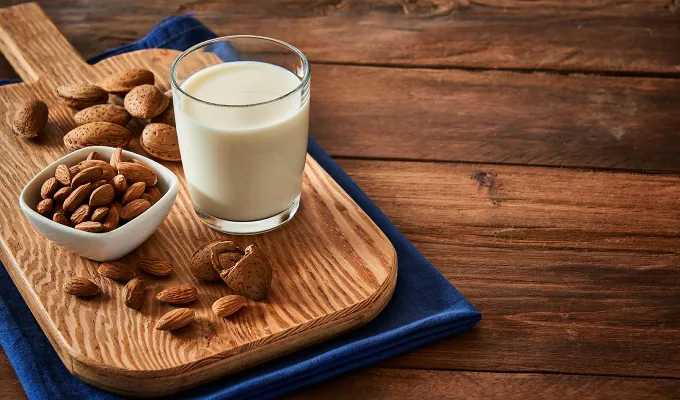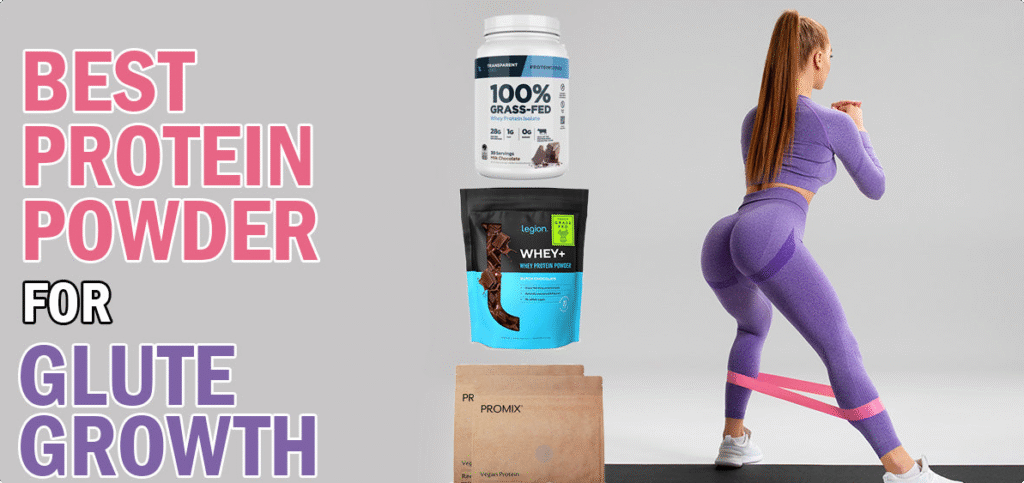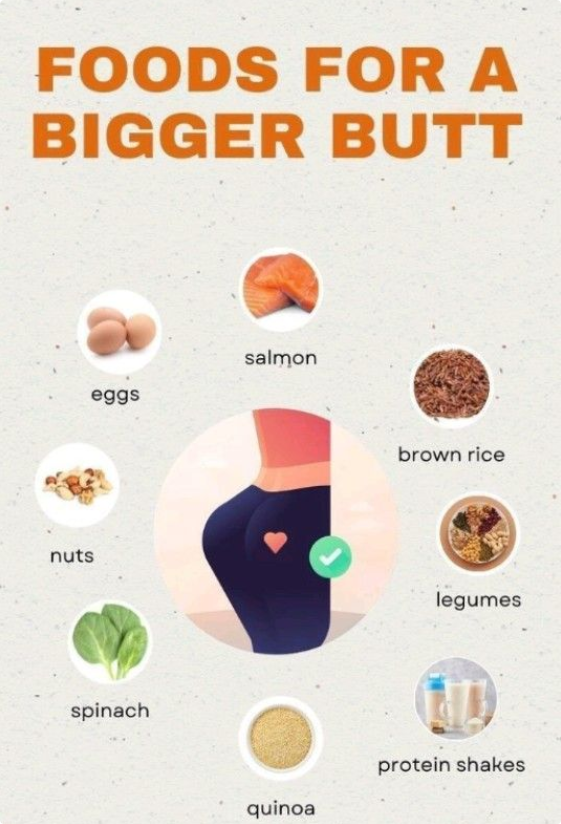There’s been a lot of buzz recently about the potential for almond milk to help women achieve a bigger butt.
While some people swear by this theory, others are skeptical. So, what’s the truth? Does almond milk really have the power to increase the size of your butt?
The short answer is no – there is no scientific evidence to support the claim that almond milk can increase the size of your butt.
However, there are some nutrients found in almond milk that can help support muscle growth and development, which could indirectly contribute to a more toned and lifted appearance.
Does Almond Milk Make Your Butt Bigger
In this article, we’ll take a closer look at the relationship between almond milk and your butt, and explore the science behind the claims.
So, if you’re curious about whether almond milk can really help you achieve a bigger butt, keep reading to find out the truth.
Understanding the Myth Behind Almond Milk and Bigger Booty
There is a popular myth that consuming almond milk can make your butt bigger.
This belief has gained popularity due to claims made by proponents of the myth and social media influencers.
However, there is no scientific evidence to support this claim.
Explaining the origin of the myth
The origin of the myth is not entirely clear, but it may have originated from the general belief that certain foods can increase the size of your butt.
Nuts, milk, and other dairy products have been touted as foods that can enhance the size of your buttocks.
Since almond milk is a dairy-free alternative to cow’s milk, it may have become associated with this belief.
What is interesting , however, is that there are some nutrients found in almond milk that can help support muscle growth and development.
Analyzing the claim made by proponents of the myth
Proponents of the myth claim that almond milk contains phytoestrogens, which are plant-based compounds that mimic the hormone estrogen.
Estrogen is known to play a role in shaping the female body, including the buttocks.
Therefore, it is argued that consuming almond milk can increase the levels of estrogen in the body, leading to a bigger butt.
However, this claim is not supported by scientific evidence.
While it is true that almond milk contains phytoestrogens, the levels are relatively low compared to other sources of phytoestrogens, such as soybeans.
Moreover, the effect of phytoestrogens on the body is not fully understood and may differ between individuals.
Examining the scientific evidence related to the myth
There is no scientific evidence to support the claim that consuming almond milk can make your butt bigger.
In fact, there is no food or drink that has been proven to enhance the size of your buttocks.
The size and shape of your buttocks are largely determined by genetics and body composition, including muscle and fat distribution.
Therefore, if you want to enhance the size and shape of your buttocks, the most effective way is to engage in regular exercise that targets the gluteal muscles.
Exercises such as squats, lunges, and hip thrusts can help build and tone the muscles in your buttocks, leading to a more defined and shapely appearance.
Additionally, maintaining a healthy diet and body weight can also help improve the appearance of your buttocks.
Nutritional Composition of Almond Milk
Almond milk is a plant-based milk that is made from ground almonds and water.
It is a popular dairy-free alternative to cow’s milk and is commonly used by people who are lactose intolerant or have a dairy allergy.
Almond milk has a unique nutritional composition that sets it apart from other types of milk.
Nutritional content of almond milk
Almond milk is low in calories and fat, making it a good option for people who are trying to maintain or lose weight.
One cup of unsweetened almond milk contains about 30-40 calories and 2.5-3 grams of fat.
Almond milk is also low in carbohydrates, with only 1-2 grams of carbs per cup.
Almond milk is rich in vitamins and minerals, especially vitamin E, which is an antioxidant that helps protect the body from damage caused by free radicals.
Almond milk also contains calcium, iron, magnesium, and potassium, although the amounts are generally lower than those found in cow’s milk.
Comparison of almond milk with cow’s milk
Compared to cow’s milk, almond milk is lower in calories, fat, and protein.
One cup of cow’s milk contains about 150 calories, 8 grams of fat, and 8 grams of protein.
Cow’s milk is also a good source of calcium and vitamin D, which are important for bone health.
However, almond milk is a good option for people who are lactose intolerant or have a dairy allergy.
It is also suitable for people who follow a vegan or plant-based diet.
| Nutrient | Almond Milk (Unsweetened) | Cow’s Milk (Whole) |
|---|---|---|
| Calories | 30 | 146 |
| Total Fat | 2.5g | 8g |
| Saturated Fat | 0g | 5g |
| Cholesterol | 0mg | 24mg |
| Sodium | 150mg | 98mg |
| Total Carbohydrates | 1g | 13g |
| Dietary Fiber | 1g | 0g |
| Sugars | 0g | 12g |
| Protein | 1g | 8g |
| Calcium | 450mg | 276mg |
As you can see, cow’s milk contains more calories, total fat, saturated fat, cholesterol, sodium, total carbohydrates, and sugars than almond milk.
On the other hand, almond milk contains more dietary fiber and calcium than cow’s milk. The choice between almond milk and cow’s milk ultimately depends on personal preference and dietary needs.
Role of almond milk in a healthy diet
Almond milk can be a part of a healthy diet, especially for people who are lactose intolerant or have a dairy allergy.
However, it is important to choose unsweetened almond milk to avoid consuming excess sugar.
Almond milk can be used as a substitute for cow’s milk in recipes such as smoothies, oatmeal, and baked goods.
While almond milk is a good source of vitamin E, it is not a significant source of other nutrients such as calcium and protein.
Therefore, it is important to ensure that your diet includes other sources of these nutrients, such as leafy greens, nuts, and seeds.
Overall, almond milk can be a healthy addition to your diet as long as it is consumed in moderation and
Factors Contributing to Butt Size
When it comes to achieving a larger butt, there are various factors that can play a role in determining the size of your glutes.
These include genetics, exercise, and diet.
Understanding the factors that determine butt size
There are many factors that can determine booty size, some major ones are:
- Genetics can play a significant role in determining the size of your butt. Some people are born with a natural tendency to store more fat in their buttocks, while others may have a more muscular build in this area.
- Exercise is an important factor in butt size. Targeted exercises that focus on the glute muscles, such as squats and lunges, can help to build muscle mass and increase the size of your butt over time.
- Overall physical activity levels can impact the size of your butt, as a sedentary lifestyle can lead to muscle atrophy and a decrease in overall size.
- Diet is perhaps the key factor in butt size. Consuming a balanced diet that includes a variety of protein sources, such as egg whites, peanut butter, and plant-based proteins like almond and cashew butter, can help to support muscle synthesis and prevent muscle breakdown.
Additionally, consuming healthy carbohydrates like sweet potatoes and brown rice can provide the energy needed to power intense glute workouts.
Examining the role of exercise and genetics in determining butt size
As discussed, exercise and genetics are the two primary factors that contribute to butt size.
While genetics cannot be changed, targeted exercise can help to build muscle mass and increase the size of your glutes.
However, it is important to remember that everyone’s body is unique, and individual results may vary.
Achieving a larger butt requires a multifaceted approach that includes targeted exercise, a balanced diet rich in protein and healthy carbohydrates, and a healthy lifestyle overall.
While almond milk can be a nutritious part of a balanced diet, it is not a magic solution for achieving a larger butt.
Other Health Benefits of Almond Milk
Almond milk is a rich source of protein, essential amino acids, and vitamins, making it a great addition to your daily diet.
Here are some of the other health benefits of almond milk:
The benefits of almond milk for bone health
Almond milk is fortified with calcium, which is essential for strong and healthy bones. In fact, a glass of almond milk contains about 45% of the recommended daily intake of calcium.
Calcium is not only important for bone health but also helps in muscle contraction, nerve function, and blood clotting.
The benefits of almond milk for weight management
Almond milk is a low-calorie and low-fat alternative to cow’s milk, making it a great option for those looking to manage their weight.
A cup of unsweetened almond milk contains only 30-40 calories, compared to cow’s milk, which contains around 120 calories per cup.
Additionally, almond milk contains dietary fiber, which helps you feel full for longer, reducing the need for snacking between meals.
The benefits of almond milk for heart health
Almond milk is free from cholesterol and saturated fats, which are harmful to the heart. Consuming almond milk can help reduce bad cholesterol levels and lower blood pressure, reducing the risk of heart disease.
Almond milk is also rich in healthy fats, such as omega-3 fatty acids, which are known to reduce inflammation and improve heart health.
Apart from these benefits, almond milk is also known to improve skin health, aid in digestion, and reduce the risk of diabetes.
It is a great addition to your daily routine, especially if you are lactose intolerant or allergic to cow’s milk.
Almond milk is a great alternative to cow’s milk and offers numerous health benefits.
From providing essential nutrients to aiding in weight management and improving heart health, almond milk is a versatile and nutritious addition to your diet.
Frequently Asked Questions
After reading the entire article, you may have some questions about almond milk and its role in butt size.
Here are some of the most frequently asked questions:
Can almond milk help reduce muscle soreness after a workout?
Almond milk is a plant-based milk alternative that is becoming increasingly popular among fitness enthusiasts. Some claim that it can help reduce muscle soreness after a workout.
However, there is limited scientific evidence to support this claim.
There are several strategies that can help reduce muscle soreness, such as adequate rest, hydration, and nutrition.
Almond milk is a good source of protein, which is essential for muscle repair and growth.
A single cup of almond milk contains about 1-2 grams of protein, which is significantly less than cow’s milk or other protein-rich sources.
While protein is important for muscle recovery, the amount found in almond milk may not be enough to have a significant impact on reducing muscle soreness.
Can almond milk be used as a replacement for other protein sources in a muscle-building diet?
Almond milk can be a good source of protein and can certainly be used as a replacement for other protein sources in a muscle-building diet.
However, it’s important to note that almond milk is not as high in protein as some other sources like meat, eggs, or dairy products.
That being said, almond milk can still be a good addition to a muscle-building diet because it’s a convenient, affordable, and balanced source of nutrition.
It’s also a good source of healthy carbohydrates, which can be used as a go-to carb source for energy during workouts.
Almond milk is also one of the healthiest and most nutrient-dense foods, containing vitamins and minerals like vitamin E, magnesium, and potassium.
However, if you’re looking to build muscle mass or increase your protein intake, it’s important to make sure you’re getting enough high-quality protein from other sources as well.
How important is vitamin B6 for muscle building and does almond milk contain enough of it?
Vitamin B6, also known as pyridoxine, is an essential nutrient that plays a crucial role in muscle building and overall muscle function. Vitamin B6 helps in the metabolism of protein, which is the primary building block of muscles.
It also aids in the production of red blood cells, which transport oxygen to the muscles, improving their function during exercise.
Almond milk contains vitamin B6, but the amount present may not be sufficient to meet the daily requirements for muscle building.
One cup of almond milk typically contains around 0.1-0.2 milligrams of vitamin B6, which is only a small fraction of the recommended daily intake.
While almond milk may not be a significant source of vitamin B6, it can still be a part of a healthy diet for muscle building. It is a convenient and affordable food source that is low in calories and fat, making it a suitable choice for those on a weight loss or maintenance diet.
It’s important to note that vitamin B6 is also found in many other foods, including lean meats, fish, whole grains, nuts, and vegetables, and a balanced diet that includes these foods can help meet the daily requirement for vitamin B6.
Can almond milk help prevent age-associated muscle strength decline?
Age-associated muscle strength decline is a natural part of the aging process, and it can lead to reduced mobility, increased risk of falls, and a lower quality of life.
Maintaining muscle mass and strength is essential to prevent age-associated muscle strength decline.
While many factors can influence muscle strength, including exercise and nutrition, almond milk can be a part of a healthy diet to support muscle health.
How does muscle protein breakdown impact muscle building and can almond milk help prevent this?
While muscle protein breakdown is necessary for muscle building, excessive or prolonged breakdown can lead to muscle loss and a decrease in muscle size and strength.
To prevent excessive muscle protein breakdown, it is important to maintain a positive balance of muscle protein synthesis, which is the process of building new muscle tissue.
This can be achieved through a combination of regular resistance exercise and adequate protein intake.
Protein is a key nutrient required for muscle building, and it is important to consume enough protein to meet your body’s needs.
Is there a specific type of almond milk (i.e. sweetened, unsweetened, flavored) that is better for muscle building?
When it comes to muscle building, the type of almond milk you choose may not make a significant difference. What is more important is the overall nutritional content of the almond milk and how it fits into your overall diet and workout routine.
Unsweetened almond milk is often recommended as it is lower in calories and sugar compared to sweetened varieties. This can be beneficial for those who are trying to control their calorie and sugar intake while building muscle.
Additionally, flavored almond milk may contain added sugars or flavorings that are not beneficial for muscle building and may be best avoided.
However, the main focus for muscle building is on the protein content of almond milk.
Almond milk is generally not a significant source of protein, with most brands containing only 1-2 grams of protein per serving. This may not be enough to support muscle building, especially when compared to other protein-rich sources such as dairy milk, soy milk, or protein supplements.
When it comes to choosing the right type of almond milk for muscle building, it’s important to prioritize protein intake overall.
If you choose to include almond milk in your diet, make sure to choose an unsweetened variety and consider pairing it with other protein sources such as nuts, seeds, or protein powders.
Overall, the key to muscle building is a balanced and nutrient-rich diet that includes a variety of protein sources, complex carbohydrates, and healthy fats. Almond milk can be a convenient and tasty addition to a muscle-building diet, but it is only one piece of the puzzle.
Can almond milk be used as a pre- or post-workout drink for muscle building?
Almond milk can certainly be used as a pre- or post-workout drink for muscle building.
Whether it is a suitable option depends on the individual’s needs and goals.
When it comes to pre-workout nutrition, the primary goal is to provide the body with adequate energy to fuel the workout.
Carbohydrates are the primary source of energy for the body, and consuming them before exercise can improve performance and delay fatigue.
Almond milk contains carbohydrates, but the amount can vary depending on the type of almond milk.
For example, sweetened almond milk may have more carbohydrates than unsweetened almond milk.
For those who need a larger amount of carbohydrates to fuel their workouts, consuming almond milk with a source of carbohydrates such as a banana or a granola bar could be a good option.
Some almond milk products are fortified with additional protein, while others may have less protein than cow’s milk or other dairy alternatives like soy milk or pea milk.
If using almond milk as a post-workout drink, it is important to consider the protein content and to consume additional protein from other sources if necessary to meet protein needs.
In addition to providing energy and protein, it is also important to consider other nutrients when choosing a pre- or post-workout drink.
What is the role of branched-chain amino acids (BCAAs) in muscle building and how does almond milk compare to other sources of BCAAs?
Almond milk, like other plant-based foods, does contain some amount of BCAAs, but it generally contains lower amounts of these amino acids compared to animal-based sources such as dairy and meat.
However, the precise amount of BCAAs in almond milk may vary depending on factors such as the brand, processing, and fortification with additional nutrients.
That being said, almond milk can still be a useful addition to a muscle-building diet as it is a convenient and nutritious source of protein, healthy fats, and other essential nutrients such as calcium, vitamin D, and vitamin E.
Additionally, almond milk is often lower in calories and fat than dairy milk, making it a good option for those who are watching their weight or trying to reduce their intake of saturated fat.
Can consuming too much almond milk be harmful to muscle building goals?
Excessive consumption of almond milk may also lead to overconsumption of added sugars or other additives, depending on the type of almond milk consumed.
For example, sweetened or flavored varieties of almond milk may contain added sugars that contribute unnecessary calories and may interfere with blood sugar control.
Moreover, almond milk may not be a suitable choice for individuals with nut allergies, as it contains almonds.
It’s important to note that muscle building is not just about protein intake; proper nutrition, including the right balance of carbohydrates, fats, and micronutrients, as well as a consistent exercise routine, are also important factors to consider.
Consuming too much of any one food or beverage, including almond milk, may not be the best approach to achieving muscle building goals.
How does oxidative stress impact muscle building and can almond milk help reduce oxidative stress?
Oxidative stress is a natural process that occurs in the body when there is an imbalance between free radicals and antioxidants.
Free radicals are molecules that can damage cells and contribute to various diseases, including muscle loss and impaired muscle function.
On the other hand, antioxidants can neutralize free radicals and reduce oxidative stress.
Studies have shown that oxidative stress can negatively impact muscle building by promoting muscle protein breakdown, reducing muscle size and strength, and impairing muscle recovery after exercise.
Therefore, reducing oxidative stress is crucial for maximizing muscle building and recovery.
Almond milk can help reduce oxidative stress due to its high content of vitamin E, which is a powerful antioxidant. Vitamin E works by neutralizing free radicals and preventing damage to cells.
However, it is worth noting that almond milk should not be relied upon as the sole source of antioxidants in the diet. A balanced diet that includes a variety of fruits, vegetables, nuts, and seeds is essential for optimal health and reducing oxidative stress.
Can almond butter be used in place of almond milk for muscle building purposes?
While almond milk is often used as a dairy-free alternative to milk or a source of hydration, almond butter is typically used as a spread or ingredient in recipes.
When it comes to muscle building purposes, almond milk is often favored due to its high protein content and low calorie count.
Almond milk contains around 1 gram of protein per 8-ounce serving, which can help with muscle repair and growth after a workout. It is also typically low in calories, which can be beneficial for individuals looking to maintain a calorie deficit to support weight loss or lean muscle gain.
On the other hand, almond butter contains significantly more calories and fat than almond milk.
While it does contain protein, it is not as protein-dense as almond milk, with only about 6 grams of protein per 2 tablespoons serving. This higher calorie and fat content may make it less ideal as a pre- or post-workout snack or drink for individuals looking to maintain a calorie deficit.
However, almond butter can still be a nutritious addition to a muscle-building diet. It is a good source of healthy fats and can help with satiety and energy levels during workouts. It can also be used as a source of protein in recipes or as a spread on whole-grain bread or crackers as a snack.
Conclusion
In conclusion, the idea that almond milk can increase the size of your butt is a myth.
While almond milk does contain some nutrients that support muscle growth and development, there is no scientific evidence to suggest that it directly contributes to a bigger butt.
Achieving a more toned and lifted appearance in your glutes requires a multifaceted approach that includes targeted exercise, a balanced diet rich in protein and healthy carbohydrates, and a healthy lifestyle overall.
Almond milk can be a nutritious part of a balanced diet, especially for people who are lactose intolerant or have a dairy allergy. It offers numerous health benefits, including bone health, weight management, and heart health.
However, it is important to choose unsweetened almond milk to avoid consuming excess sugar and to ensure that your diet includes other sources of key nutrients such as calcium and protein.
In summary, almond milk is a great alternative to cow’s milk and a healthy addition to your diet, but it is not a magic solution for achieving a bigger butt.





